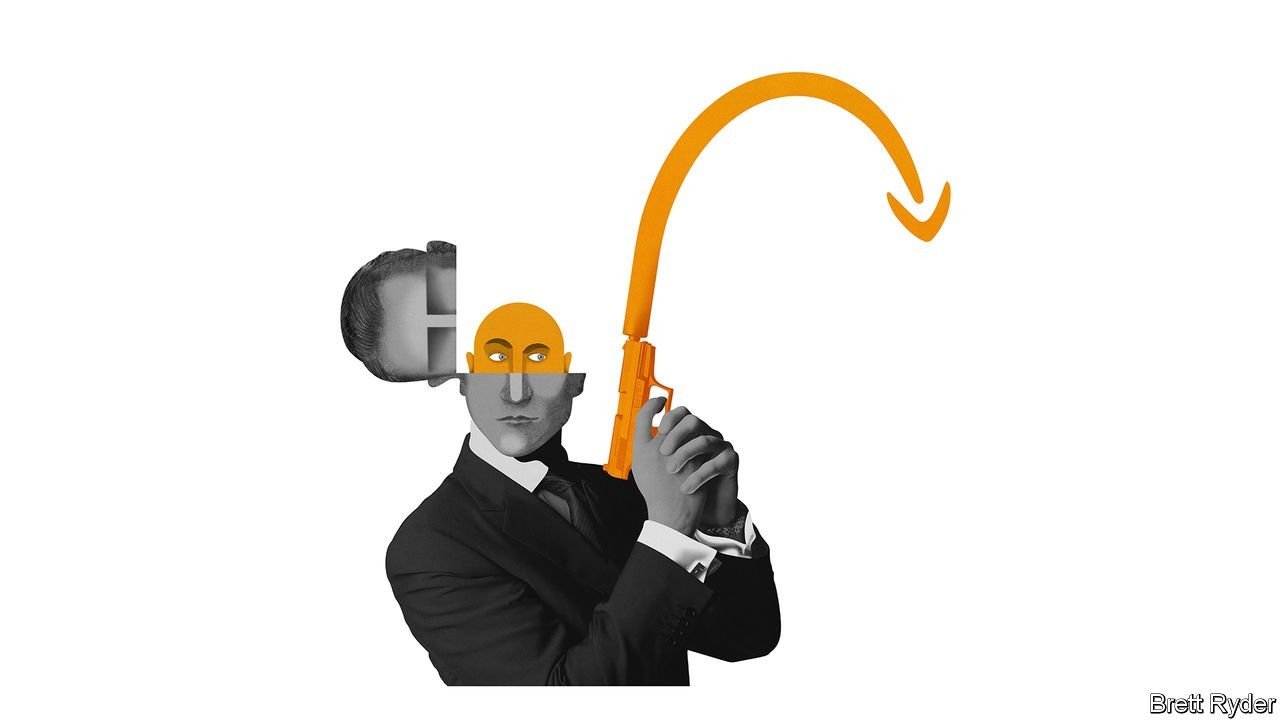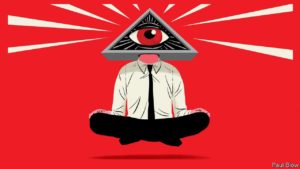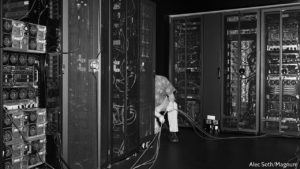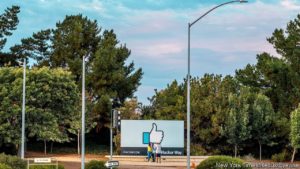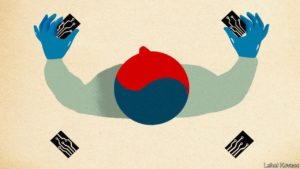https://www.economist.com/node/21801336?fsrc=rss%7Cbus
IN THE EARLY days of Amazon, its founder, Jeff Bezos, insisted there was some advertising the e-commerce giant wouldn’t touch, such as guns. That extended to James Bond’s Walther PPK. When producers of “Skyfall”, a Bond film released in 2012, sought to run an ad on the site, Amazon at first informed them that it violated the company’s weapons policy. “The studio was like ‘screw you!’” an Amazon executive later recalled. “Who is James Bond in silhouette without a gun? Literally, he’s just a random dude.”
This anecdote, one of innumerable gems in Brad Stone’s latest book, “Amazon Unbound”, springs to mind amid reports that Amazon is in talks to acquire Metro-Goldwyn-Mayer (MGM), part-owner of the Bond franchise, for $9bn. The book, by one of the company’s most astute observers, helps answer a question many are pondering as arguably the world’s most accomplished businessman prepares to surrender his role as CEO this summer. Will the Seattle-based e-commerce and cloud-computing juggernaut, whose revenues have grown at a compound annual rate of over 40% for more than two decades, lose momentum without its dome-headed, maths-geek mastermind? Or will it, like the Bond franchise itself, continue to thrive even with newcomers in the starring role?
One of Amazon’s bigger investors reckons it already knows the answer. Baillie Gifford, an Edinburgh-based asset manager, is cutting its stake. To explain why its enthusiasm has waned after 15 years as a shareholder, it borrows Mr Bezos’s mantra that it should always be “Day One” at Amazon—infused with a spirit of long-term focus, customer obsession and bold innovation. “Amazon is now seen as good value, safe and acceptable,” Baillie Gifford recently told its own investors. “It no longer has a founder CEO. We fear that in his inimitable terms it is no longer Day One in Seattle though the road ahead is still long and profitable.”
There is plenty in Mr Stone’s book to lend weight to such a characterisation. Central to it is Mr Bezos’s omnipotence within the firm. His business acumen is already legendary. Less well known is his role as a master of in-house invention on everything from Alexa, a voice-operated digital assistant, to Amazon’s own-label “single-cow burger”, his obsession with high standards, his tolerance of failure when in service to big ideas, his laser-like focus on financial nitty gritty and his (often exasperating) attention to detail. However much his successor, Andy Jassy, was schooled at his boss’s hip, he may lack the inventive streak that unites the likes of Mr Bezos and Apple’s late founder, Steve Jobs.
Yet how much mileage was there left in it anyway? Despite a period last year when Mr Bezos took back day-to-day control during the pandemic, his relationship with Amazon has already become semi-detached. Mr Stone portrays a chief executive who, once he had become the world’s richest man, metamorphosed into a master of the universe. From a focus on Amazon’s self-perpetuating “flywheel” of endless choice, relentless innovation and customer-centricity, his horizons expanded: to space, for which he is building rockets; to newspaper publishing, as owner of the Washington Post; and to Hollywood, where he met Lauren Sanchez, for whom he left his wife. He moved into what Mr Stone calls an “alternate dimension of wealth, glamour and international intrigue”. The geek muscled up. He hung out with A-list celebrities. In short, he appeared to have outgrown his terrestrial creation.
Mr Jassy shares some of Mr Bezos’s virtues, such as what Mr Stone describes as “almost inhuman levels of discipline”. On his watch, Amazon Web Services, the cloud business that is Amazon’s biggest source of profits, has exhibited the parent company’s culture of high standards and unrelenting competitiveness. Since joining the firm in 1997, he has been steeped in Amazon values like frugality. In addition, as Mr Stone writes, Mr Jassy may also be somewhat humbler than Mr Bezos in confronting Amazon’s problems: a marketplace business accused by dissatisfied merchants of fraud and unfair competition (baselessly in Amazon’s eyes), warehouse staff seeking higher pay and better working conditions, and regulatory probes in America and Europe. The company is already splurging on employee health and welfare programmes.
Mr Jassy’s toughest task may simply be confronting the law of large numbers. With revenues of $386bn last year and a market value of $1.6trn, it is ever harder for Amazon to keep the flywheel going, especially with potential accelerators, such as India, underperforming. Last year the firm had capital expenditures of $40bn. How does it allocate so much money without frittering a lot away?
The world is not enough
Such questions make the potential acquisition of MGM to bolster Amazon’s Prime subscription services intriguing. Even at a pricey $9bn, it is easily affordable for Amazon. Last year it spent $11bn on TV series, films and music for Prime. The reports come days after Mr Jassy announced the return of Jeff Blackburn, a veteran Amazon executive who left the firm recently. He will oversee a media and entertainment business that includes sports rights, such as the National Football League’s “Thursday Night Football”, Twitch, Amazon’s gaming platform, and Amazon Studios, which recently won two Oscars. First he will report to Mr Bezos, then to Mr Jassy.
This could suggest that the post-Bezos era will be marked by the quest for a new source of rapid growth—a flywheel in which blockbuster entertainment, advertising and shopping reinforce each other. Or it could be the departing CEO’s final vanity project. If it is a flywheel, it may form part of a new era of competition among America’s tech giants. As one observer puts it, Amazon is trying to crack mass entertainment before Facebook and Google crack shopping. If it is a sign of hubris, it would be more worrying, suggesting that Mr Bezos will use his new role as executive chairman to drive Amazon from the leather-clad luxury of the back seat. Perhaps stroking a white cat as he does so. ■
This article appeared in the Business section of the print edition under the headline “The name is Bezos. Jeff Bezos”
